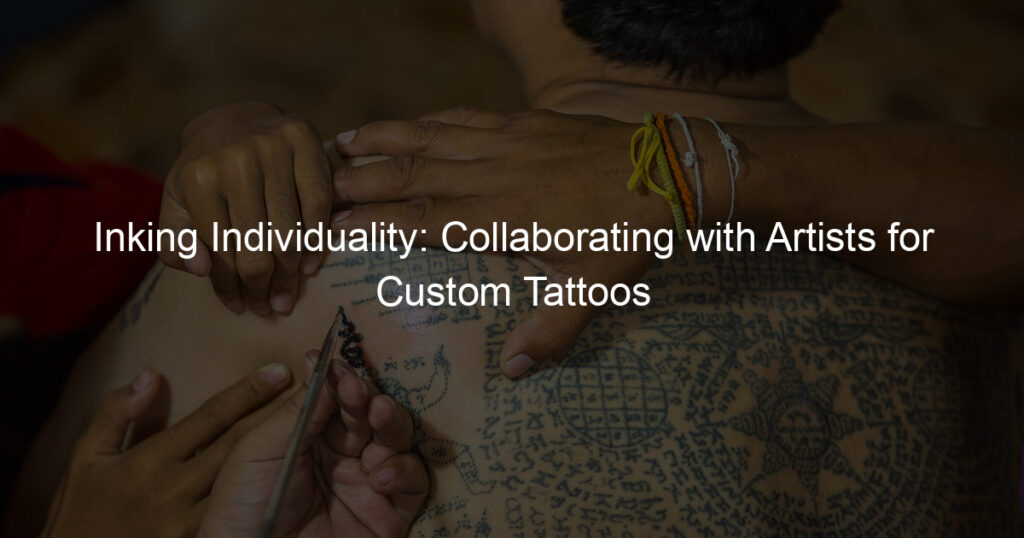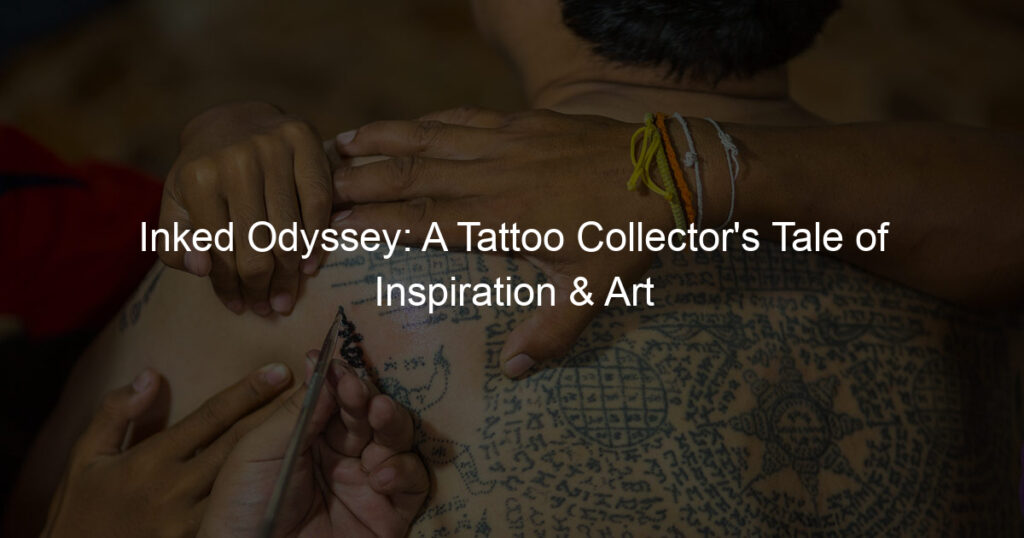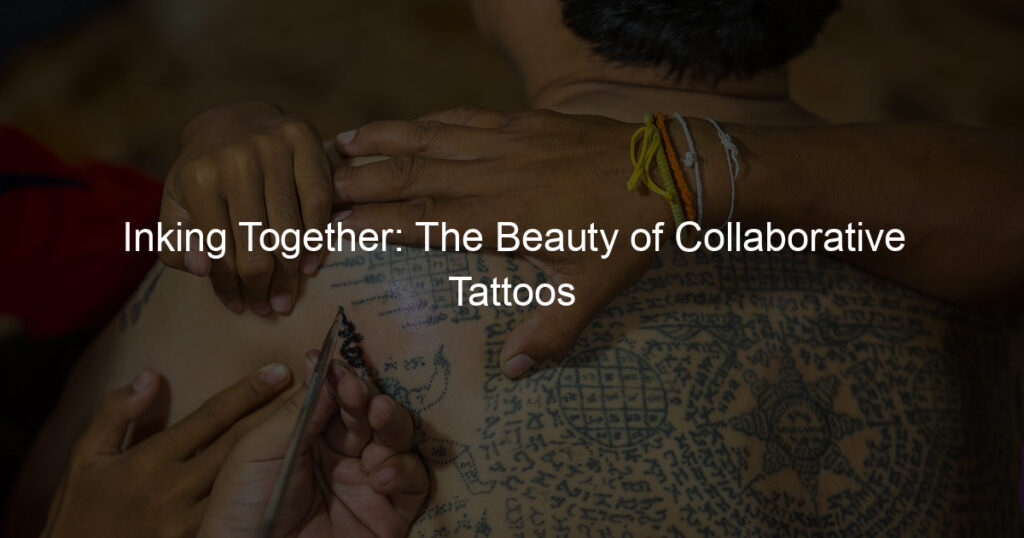
Introduction to the Tattoo Artist Career
Have you ever wondered about the world of tattooing? It’s a fascinating profession, filled with creativity and skill. In this article, we will delve into the captivating career of a tattoo artist, exploring what it entails and the journey to becoming one.
A tattoo artist is a professional who uses their artistic skills to apply permanent decorative designs, messages, or symbols onto the skin of their clients. This is done using a special machine that inserts ink into the skin via a series of small punctures. It’s a career that requires a high level of artistic ability, precision, and an understanding of the importance of health and safety procedures.
As a tattoo artist, you have the opportunity to help people express themselves in a unique and personal way. It’s a job that requires a lot of creativity, as you’ll be working with clients to create designs that reflect their ideas and personality. But it’s not just about the art. Tattoo artists also need to have good people skills, as they spend a lot of time interacting with clients, and they need to be able to make them feel comfortable and at ease.
The world of professional tattooing is diverse and dynamic. It’s a field that’s constantly evolving, with new trends and techniques emerging all the time. As a tattoo artist, you’ll have the opportunity to work in a variety of settings, from tattoo parlors and studios to private practices.
There’s also a lot of room for specialization within the tattooing field. Some artists choose to focus on a specific style, such as traditional, realism, or tribal, while others might specialize in certain types of tattoos, like portraits or lettering. The possibilities are endless, and it’s this variety that makes the profession so exciting and rewarding.
Steps to Becoming a Tattoo Artist
Embarking on a career as a tattoo artist is an exciting journey that requires dedication, talent, and a love for the art form. Here are the key steps you need to take to turn your passion for tattoo artistry into a rewarding career.
-
- Developing an Interest in Tattoo Artistry
The first step to becoming a tattoo artist is developing a genuine interest in tattoo artistry. This means appreciating the art form, understanding its history, and being passionate about creating unique pieces of body art. You might start by drawing designs, studying the work of professional tattoo artists, or even getting tattoos yourself to experience the process firsthand.
-
- Getting the Right Tattoo Artist Education
While there are no specific educational requirements to become a tattoo artist, having a solid foundation in art and design can be beneficial. This could include taking art classes in high school, attending a specialized art school, or even obtaining a degree in fine arts. In addition to this, many aspiring tattoo artists also complete a tattoo artist certification program, which covers topics like safety procedures, skin diseases, and infection control.
-
- Acquiring Essential Tattoo Artist Skills
Becoming a skilled tattoo artist requires more than just artistic talent. You also need to develop a steady hand, an eye for detail, and the ability to work with different types of skin. Practicing your drawing skills regularly and experimenting with different styles and techniques can help you hone these skills.
-
- Undergoing Tattoo Artist Training
Once you have a solid foundation in art and have developed the necessary skills, the next step is to undergo formal tattoo artist training. This typically involves completing an apprenticeship under a seasoned tattoo artist, where you’ll learn the ins and outs of the tattooing process, from designing a tattoo to handling the tattoo machine.
-
- Starting Your Tattoo Artist Journey
After completing your training, you’re ready to start your journey as a professional tattoo artist. This could involve working in a tattoo studio, opening your own shop, or even traveling the world as a guest artist. Remember, becoming a successful tattoo artist takes time and patience, so don’t be discouraged if you don’t achieve your goals right away. Keep practicing, keep learning, and most importantly, keep creating.
Key Skills for a Professional Tattoo Artist
Being a professional tattoo artist is more than just drawing designs on skin. It requires a unique blend of skills and talents. Here are some of the key skills that every professional tattoo artist should possess:
-
- Artistic Ability
At the heart of tattooing is art. Tattoo artists must have a strong artistic ability, including a good sense of design and color. They should be able to create original designs that meet their clients’ visions and expectations.
-
- Steady Hand and Eye for Detail
Tattooing requires precision and attention to detail. A steady hand is essential to ensure the design is applied accurately and cleanly. An eye for detail helps in creating intricate designs and ensuring the quality of the final product.
-
- Understanding of Hygiene and Safety Standards
Working with needles and ink on human skin requires a high level of hygiene and safety. Tattoo artists must understand and follow strict hygiene and safety standards to prevent infections and ensure the well-being of their clients.
-
- Customer Service Skills
Like any other service industry, tattooing requires excellent customer service skills. Tattoo artists should be able to communicate effectively with their clients, understand their needs and expectations, and provide a comfortable and positive experience.
-
- Business Management Skills
Many tattoo artists are self-employed and run their own studios. This requires business management skills, including understanding of marketing, finance, and operations. These skills help in managing the business effectively and ensuring its success.
In conclusion, being a professional tattoo artist requires a blend of artistic talent, precision, understanding of hygiene and safety, customer service skills, and business management skills. With these skills, one can create beautiful art on skin and run a successful tattoo business.
Tattoo Artist Education and Training
Embarking on a journey to become a tattoo artist requires a unique blend of artistic talent and technical skills. Let’s delve into the formal education that can help you hone these skills.
Formal Education
While there’s no specific degree required to become a tattoo artist, certain formal education courses can provide a solid foundation for your career. These courses fall into two main categories:
-
- Art Courses
Art courses are essential for aspiring tattoo artists. They help you develop your artistic abilities and understand the principles of design, color theory, and anatomy. These courses can be taken at community colleges, art schools, or even online. They provide a platform for you to explore different art styles and mediums, which can greatly influence your unique tattooing style.
-
- Health and Safety Training
Health and safety training is equally important. This training ensures you understand the importance of maintaining a clean and safe environment for your clients. It covers topics like sterilization techniques, preventing cross-contamination, and proper disposal of used materials. Some states even require tattoo artists to complete specific health and safety courses before granting them a license to practice.
Remember, formal education is just the first step. Real-world experience, gained through apprenticeships, is crucial to truly mastering the art of tattooing. But we’ll delve into that in the next section.
Apprenticeships
One of the most effective ways to become a skilled tattoo artist is through apprenticeships. This method of learning provides an opportunity to gain practical experience and learn from seasoned professionals in the field. Let’s explore the two main aspects of apprenticeship programs.
- Learning from a Professional Tattoo Artist
Learning directly from a professional tattoo artist is a valuable part of an apprenticeship. This mentorship allows you to observe and learn the techniques and styles that have made them successful. You’ll get to see how they interact with clients, manage their workspace, and handle the challenges that come with the job.
For example, you might learn how to create a detailed and realistic portrait tattoo or how to use color effectively in a traditional style piece. This hands-on experience is invaluable and can’t be replicated in a classroom setting.
- Hands-on Tattoo Artist Training
Another crucial aspect of an apprenticeship is the hands-on training you’ll receive. This isn’t just about watching – it’s about doing. Under the guidance of your mentor, you’ll start practicing tattooing techniques, first on practice skins and then, when you’re ready, on real clients.
You’ll learn how to set up your workspace, how to handle and maintain your equipment, and how to apply a tattoo safely and cleanly. This practical experience is essential for building your skills and confidence as a tattoo artist.
In conclusion, apprenticeships offer a unique and invaluable opportunity for aspiring tattoo artists. They provide a chance to learn from professionals in the field and gain hands-on experience that can’t be obtained in any other way.
The Tattoo Artist Journey: Case Studies
Let’s take a look at the journeys of two different tattoo artists. Their paths to success were not the same, but they both ended up in the same place: creating beautiful art on people’s skin.
-
Case Study 1: From Art Student to Professional Tattoo Artist
Meet Sarah. She was an art student in college, always sketching and painting. One day, she got a tattoo and fell in love with the process. She decided to learn more about it.
After graduating, Sarah found a tattoo shop that was willing to take her on as an apprentice. She spent two years learning the ropes, practicing on synthetic skin before moving on to real clients. She worked hard, often staying late to perfect her designs.
Today, Sarah is a professional tattoo artist with a loyal clientele. She specializes in watercolor tattoos, a style that reflects her background in painting. She loves her job and wouldn’t trade it for anything else.
-
Case Study 2: The Path of a Self-Taught Tattoo Artist
Now, let’s talk about Mike. He didn’t go to art school. In fact, he didn’t even finish high school. But he had a passion for drawing and a knack for creating intricate designs.
Mike started out by tattooing himself and his friends with a homemade tattoo gun. He made a lot of mistakes, but he learned from them. He watched online tutorials and read books on tattooing. He practiced every day, slowly improving his skills.
Eventually, Mike was able to open his own tattoo shop. He’s known for his detailed black-and-grey tattoos, and people travel from all over to get inked by him. Mike proves that you don’t need a formal education to be a successful tattoo artist. All you need is dedication, creativity, and a willingness to learn.
These case studies show that there are many paths to becoming a tattoo artist. Whether you’re an art student or a self-taught artist, you can make it in this industry if you’re willing to put in the work and keep learning.
Challenges and Rewards of the Tattoo Artist Career
Being a tattoo artist is not just about creating beautiful designs on the skin. It’s a career that comes with its own set of challenges and rewards. Let’s take a closer look at some of the hurdles that tattoo artists often face in their journey.
Challenges
-
- Long Hours of Practice
Perfecting the art of tattooing requires countless hours of practice. It’s not just about learning how to operate the tattoo machine, but also about understanding the human skin, mastering different techniques, and developing a steady hand. The long hours can be physically and mentally draining, but they are a necessary part of becoming a skilled tattoo artist.
-
- Staying Up-to-Date with Tattoo Trends
Tattoo trends change rapidly, and it’s crucial for tattoo artists to stay updated. This means constantly learning, researching, and adapting to new styles and techniques. It can be challenging to keep up with the fast-paced world of tattoo art, but it’s also what keeps the job exciting and fresh.
-
- Managing a Tattoo Business
Many tattoo artists dream of owning their own tattoo studio one day. However, running a business involves more than just tattooing. It includes tasks like marketing, accounting, customer service, and managing employees. These responsibilities can be overwhelming, especially for artists who are more focused on their craft than the business side of things.
Despite these challenges, being a tattoo artist can be incredibly rewarding. It’s a career that allows for creativity, personal growth, and the opportunity to leave a lasting mark on someone’s life. In the end, the rewards often outweigh the challenges.
Rewards
Being a tattoo artist is not just about overcoming challenges. It also comes with a number of rewarding experiences. Let’s delve into some of these rewards that make the journey worthwhile.
- Creating Meaningful ArtAs a tattoo artist, you have the unique opportunity to create art that holds a deep meaning for your clients. Tattoos often symbolize important life events, personal beliefs, or cherished memories. When you etch these designs onto the skin, you’re not just applying ink; you’re helping people express their identities and stories in a visible, lasting way. This can be a deeply satisfying aspect of the job.
- Building a Loyal Client BaseAnother reward of being a tattoo artist is the chance to build a loyal client base. Over time, as you hone your skills and develop your unique style, you’ll attract clients who appreciate your work and come back for more. These repeat customers not only provide a steady income but also form a community of supporters who value your artistry. It’s a rewarding experience to see your client base grow and to know that your work is appreciated.
- Expressing Your CreativityLastly, being a tattoo artist allows you to express your creativity. Every client and every tattoo design is a new canvas for your artistic expression. You can experiment with different styles, techniques, and color palettes, pushing the boundaries of your creativity. This freedom to create can be one of the most rewarding aspects of the job, allowing you to grow as an artist while doing what you love.
In conclusion, while the path to becoming a tattoo artist can be challenging, the rewards can be immense. From creating meaningful art and building a loyal client base to expressing your creativity, the benefits of this career can make the journey worthwhile.
Conclusion: Ink Your Destiny
As we reach the end of our exploration into the world of tattoo artistry, it’s time to reflect on what we’ve learned and consider the future. Becoming a tattoo artist is not a journey for the faint-hearted, but for those with the passion and dedication to master this craft, it can be a rewarding career.
-
- Recap of the Path to Becoming a Tattoo Artist
Embarking on the path to becoming a tattoo artist begins with a passion for art and a desire to express oneself through ink. This journey involves several steps, including mastering the art skills, getting the necessary education and training, and gaining hands-on experience through apprenticeships. It’s also crucial to develop key skills such as precision, creativity, and excellent customer service.
-
- Final Thoughts on the Tattoo Artist Career
The career of a tattoo artist is filled with challenges and rewards. It requires dedication, patience, and a continuous desire to learn and improve. However, the joy of creating meaningful art that becomes a part of someone’s life story makes all the hard work worthwhile. As a tattoo artist, you have the power to ink your destiny and leave a lasting mark on the world.
In conclusion, the journey to becoming a tattoo artist is a unique blend of art, skill, and personal connection. It’s a path that requires dedication and passion, but the rewards are immeasurable. As a tattoo artist, you not only get to create beautiful art but also touch people’s lives in a profound way. So, if you’re ready to ink your destiny, the world of tattoo artistry awaits you.














